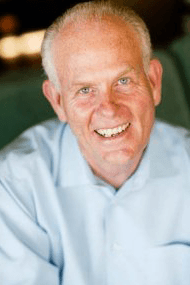The Gift of Limits
Link / External content not produced by TOW Project
by Jim Moats
Want your company to be better than average? If you don’t, read no further.
In recent posts, I’ve been raising the relationship between company growth, employee engagement, and customer value creation. Today I am raising the relationship between company performance and CEO limitations — they always exist, but we rarely discuss them. I’ll let you in on a little known secret — there are no perfect CEOs.
During a meeting with the board chair of a local enterprise, the CEO’s performance came up. It seems the chair and other board members have been trying to get through to the CEO regarding her limitations, but she continually resists them.
They described the CEO as bright, articulate, and charismatic, with a depth of industry knowledge that is exceptional. The board recruited her, and she continues to have their full support. However, she resists seeing and acknowledging her limitations, which the board believes significantly limit growth.
Why is this so vital? Each CEO and leader is like an organism in the company’s “ecosystem”; there are certain roles and relationships in which they thrive and others in which they don’t. When the “ecosystem” is lead by people who thrive in the roles they play, the company thrives too.
Gallup has popularized the term “strengths” through the book, Now Discover Your Strengths and by coining the term, “Strengthfinder.” While I’m completely in support of this, we still need to deal with limitations, because unless a company’s “ecosystem” can embrace a CEO’s personal limitations, it remains in that awful and constraining place of denial. Ignoring a CEO’s limitations decreases collaboration and causes the “ecosystem” to become half-hearted in its work.
Whole-hearted collaboration is the key to accelerated value creation.
Accepting limits
Why is accepting our limitations such a big deal? Most of us learn at an early age that we need to try to be something more than we are, so we extend ourselves by trying to go beyond our inherent range. While this process is a necessary part of life, I believe that failure is the least efficient method for discovering limitations. I have learned that when I stay within my inherent limits, life and business are more meaningful — I flourish as well as those around me. Accepting my limits has been a wonderful gift, especially when those around me can also accept them.
Limitations are as much of a gift as strengths.
Here is a positive example of how this can work: In my peer groups, members have fun helping each other explore strengths and limitations. In a recent meeting, one particular CEO announced that the group had helped him with this process, and he went on to say that he had come to grips with a limitation. He shared that he needed to feel more knowledgeable than others in order to feel good about himself, and this had limited his ability to thrive in business and personal relationships. He thanked the group for giving him this gift, and returned it by helping them learn from his new understanding.
Remaining blind to personal limitations imputes an immense cost, while facing them sets you and others in your “ecosystem” free to flourish. Freedom and employee engagement go hand in hand, and without this “value creation” will remain weak.
From another point of view, if my “ecosystem” allows me to remain blind to my limitations, it robs those people with strengths that complement my limitations, of the opportunity to bring all of their capacity into their work. When I am partially blind and am near the top of the organizational chart, dysfunction cascades from me through the entire organization. Removing this block is very powerful —leading to employee engagement and accelerated value creation.
Would you like to be clear on your particular strengths and limitations? How would this affect your life? You might be pleasantly surprised. I’d love to know your thoughts.

Jim Moats works with management teams of privately owned companies to stimulate organic collaboration; he also chairs a CEO-and-key-executive group through Vistage International. He has served in a variety of CEO and corporate senior executive roles and currently publishes a weekly blog on high performance leadership, which can be found at www.peer-place.com.
This article serves as an illustration of accepting limits in "Limits (Genesis 2:3; 2:17)" in Genesis 1-11 and Work at www.theologyofwork.org.




